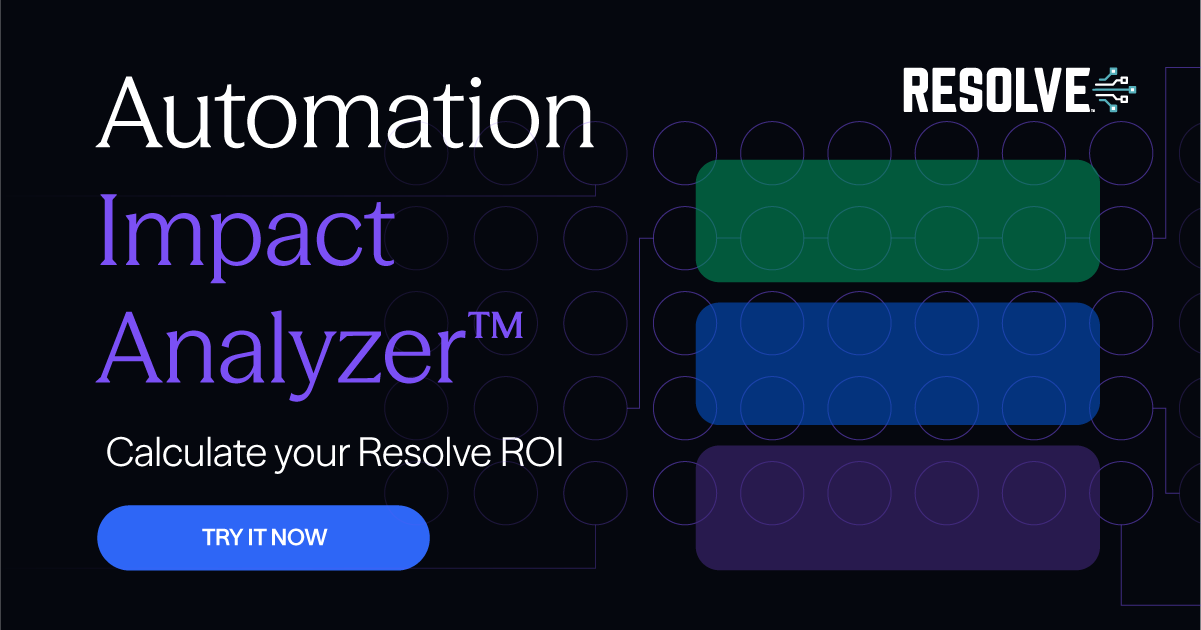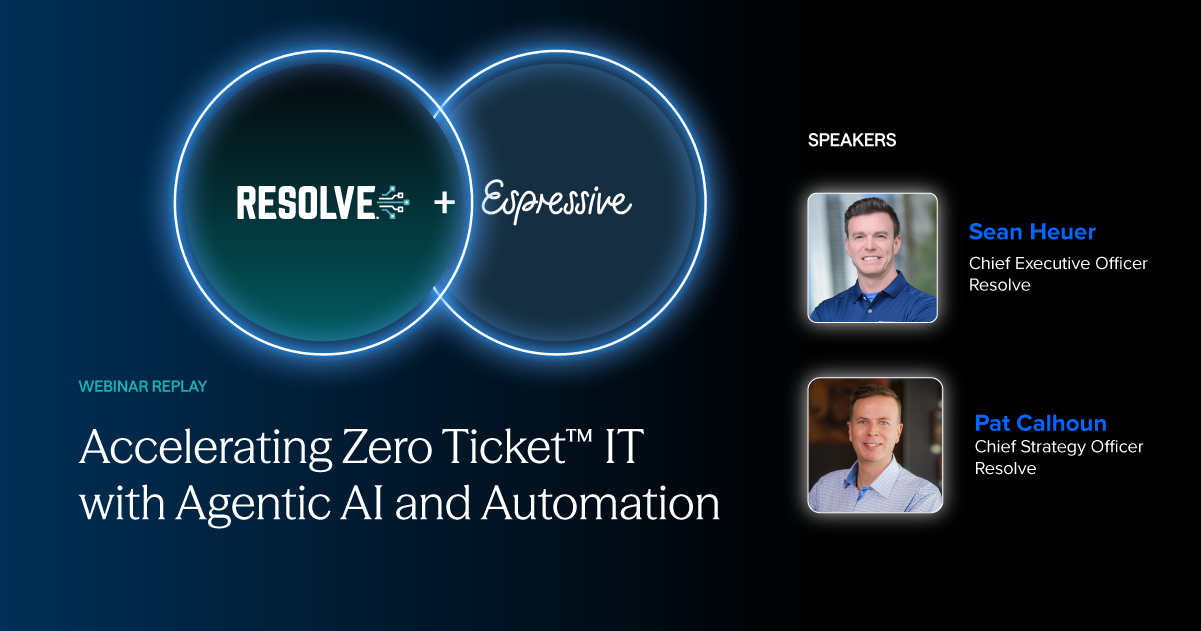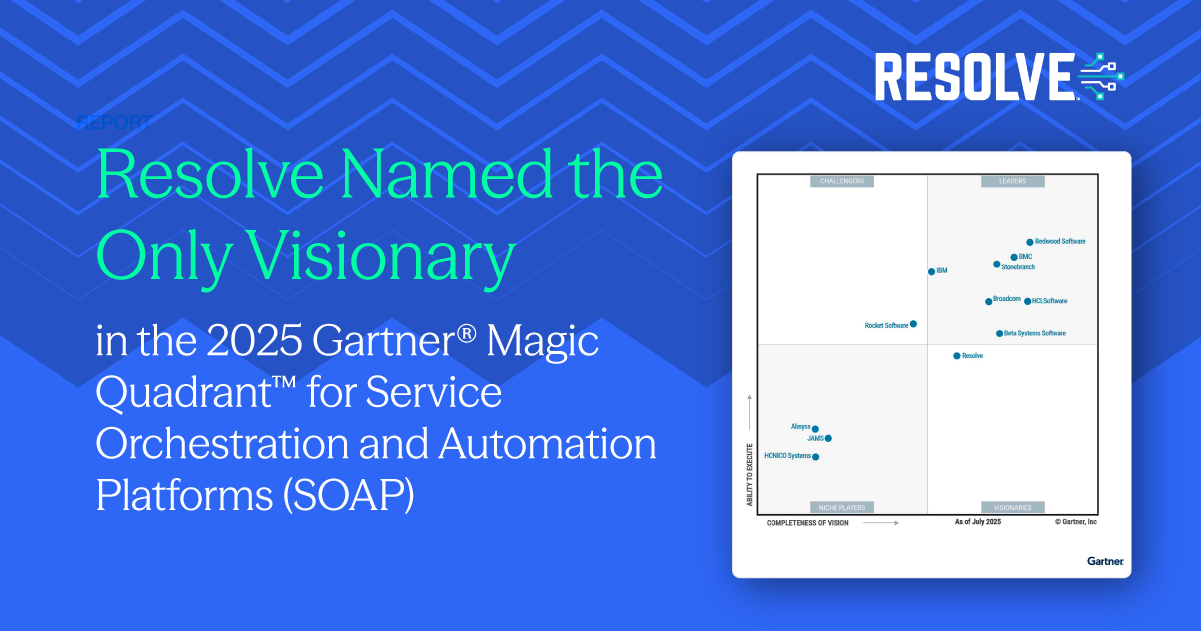
Why Your Next ITSM Agent Won’t Be Human (and Why That’s a Good Thing)
Subscribe to receive the latest content and invites to your inbox.
For a very long time now, IT leaders have relied on the “throw more bodies at it” strategy: when ticket volumes rise, headcount follows.
That model no longer works. Hybrid work, SaaS sprawl, and cloud complexity have made human-only scaling unsustainable.
The enterprises winning today aren’t scaling with headcount. They’re scaling with autonomous ITSM agents: AI-driven specialists that resolve tickets instantly, escalate only when needed, and keep operations running 24/7.
The next leap forward is an AI service desk specialist that takes on L1 and L2 tickets from start to finish and closes cases without human intervention. This shift is about redefining IT’s role in the business as a driver of agility, resilience, and measurable value. This is a paradigm we refer to as Zero Ticket™ IT.
What Is an ITSM Agent Today?
Traditionally, an ITSM agent referred to a service desk staff member who triaged tickets, troubleshot issues, and escalated complex problems. That definition is evolving, because the contemporary ITSM agent comes in not one, but three forms:
- Human agents: Still critical, but ideally focused on high-value, complex work rather than repetitive tasks.
- Automation agents: Like RITA, our tier-one deflector, which intercepts requests in Slack or Teams and handles routine Tier 1 workflows such as password resets or VPN troubleshooting.
- Autonomous agents: The best agents not only diagnose, but execute resolutions for L1 and L2 tickets across IT, HR, procurement, and operations, escalating only when human expertise adds value.
This is what ITSM agent has come to mean, and organizations whose own ITSM structure don’t mirror the triad above risk falling behind their competitors.
READ MORE: RITA: The Chatbot Alternative That Doesn’t Waste Your Time
Why Enterprises that Shift to Autonomous ITSM Agents Are Now Winning
Ticket volumes are rising everywhere, but 60–80% of those tickets are still routine and therefore prime candidates for automation. The old service desk model simply wasn’t built for this scale, leading to burnout for staff, long wait times for employees, and unsustainable costs.
The best ITSM agents directly address this with three pillars:
Hands-Free Autonomy for L1/L2
- Resolves the majority of L1 and L2 tickets end-to-end.
- Operates 24/7 across all time zones.
- Escalates only when human input adds value.
Seamless Enterprise Integration
- Natively integrates with ServiceNow, Jira, Ivanti, BMC, Freshworks, and more.
- Updates employees through Slack, Teams, or email.
- Executes automations directly within connected enterprise systems.
Secure, Compliant, and Auditable
- Role-based access controls and encryption baked in.
- Full audit trails for compliance and oversight.
- Policy enforcement and governance support at scale.
The results of using ITSM agents with this versatility include faster resolution, lower costs, and an employee experience that finally matches consumer expectations.
Downtime directly impacts productivity and revenue. Autonomous ITSM agents offer operational improvements but, more to the point, strategic resilience that stops this problem before it has a chance to create an impact.
Enterprise ROI: The Agentic Advantage
CIOs live and die by results, and the best autonomous ITSM agents deliver. Here’s how:
Time to Value
- Prebuilt workflows for password resets, access provisioning, VPN access, and more deliver measurable impact in under 90 days. These fast outcomes make ITSM agents low-risk, high-reward entry points for enterprises under pressure.
Hard ROI
- Up to 80% of L1/L2 tickets resolved autonomously.
- 50%+ faster mean time to resolution (MTTR).
- Lower ITSM licensing and consumption costs through deflection and automation.
Soft ROI
- Employees receive instant support, eliminating frustrating waits and downtime.
- IT staff redirect time from firefighting to modernization, security, and innovation.
- Executives gain clear, measurable reporting on automation ROI and SLA compliance.
Use Case: VPN Connectivity Issue
- RITA engages the user. It runs initial troubleshooting (restart VPN service, reset profile, clear DNS). If resolved, no ticket is created.
- Another agent takes over unresolved cases. It runs advanced diagnostics, checks Active Directory membership and VPN logs, repairs entitlements, and confirms resolution.
- Outcome: MTTR drops to ~4 minutes. No human involvement and fully auditable ticket closure.
The compounding effect is critical. Every executed workflow feeds data back into the system, highlighting the next best process to automate. Over time, ITSM agents evolve from handling routine fixes to orchestrating cross-domain operations. The ROI accelerates with every iteration instead of staying static.
READ MORE: The Cost of Waiting: Why Operationalizing AI in IT Can’t Be Delayed Any Longer
How CIOs Build Momentum with Autonomous ITSM Agents
The best IT leaders don’t stop at Tier 1 automation. They build layered, autonomous support models like so:
- Start with RITA: Deflect 30–50% of tickets before they’re even created.
- Deploy Resolution Agent: Resolve 50–80% of the L1/L2 tickets that remain inside ITSM.
- Expand Enterprise-Wide: Move into infrastructure, NetOps, security, HR, procurement, and sales workflows.
This layered model creates quick wins while building trust, credibility, and momentum. Each success story fuels further investment, turning automation into a company-wide transformation engine. Enterprises that follow this roadmap see IT evolve from a reactive cost center to a proactive enabler of business innovation.
ITSM Agents as a Blueprint for Zero Ticket IT
Autonomous ITSM agents are the catalyst for Zero Ticket IT: a future where issues are prevented or resolved without employee friction. With agents like RITA, organizations achieve:
- Proactive resolution: Identify and remediate issues before tickets form.
- Cross-functional orchestration: Connect ITSM with HR, finance, procurement, and facilities.
- Human + machine collaboration: Automation handles the ticket slog, freeing humans to focus on strategy.
Unlike traditional chatbots or static workflows, truly autonomous agents don’t stop at classification or routing. It interprets, diagnoses, executes, verifies, and closes. The result is resilient, business-aligned operations without the human bottlenecks.
This paradigm reinvents IT support. Rather than building escalation-heavy models that depend on linear staffing, enterprises deploy a layered digital workforce that continuously improves with use. Each ticket resolved feeds your knowledge base, making every subsequent incident easier to manage faster.
Questions to Ask Before Deploying an ITSM Agent
- Where are my highest-volume L1 and L2 tickets?
- Can autonomous ITSM agents integrate directly with my ITSM today?
- How quickly can I demonstrate ROI to leadership?
- Will this scale across IT, HR, procurement, and beyond?
It’s Possible to Scale IT Support Without Headcount
Throwing people at IT demand is no longer viable. Autonomous ITSM agents resolve tickets instantly, scale operations continuously, and free IT teams for high-impact work.
IT leaders who embrace this shift aren’t just reducing backlogs; they’re building a foundation for a modern digital enterprise. With the best ITSM agents working in tandem, enterprises move closer to a Zero Ticket IT future where technology and talent collaborate seamlessly to deliver agility, resilience, and long-term value.
Ready to see what intelligent ITSM agents can do for your enterprise?






